The Year Ahead: Writing in 2014
Happy New Year! It’s the first day of 2014, and as we all know, the start of a new year means the promise of new beginnings. It also means the emergence of those infamous promises we make ourselves: New Year’s resolutions. Sure, maybe most of them don’t make it past February, but I still think it’s good to motivate ourselves to make the next year even better than the last. That’s why I want to start this year’s blog posts with a list of my own resolutions for my 2014 writing experience!

Since I’m in vacation mode, I’ll keep this post short and sweet. Here are my hopes for 2014:
1) Be more productive with my writing. Not that I haven’t been productive already, but there’s always room for improvement, right? It probably goes without saying that I’d love to be able to write even more in 2014 than I did in 2013, as much for my blog as for my stories. What writer wouldn’t want the time and inspiration to work on several projects at once?
2) Work more on my novels. I admit it: I haven’t been working on my novels as much as I should. I could blame it on all the other projects that I’ve been busy with lately, but in the back of my mind, I still keep telling myself I should be working on my novels every day, even if it’s just a little bit at a time. Hopefully I can get back on track this year. Like many aspiring writers, I dream of the day when I can finally say I published a book!
3) Read new books. Guess who got Neil Gaiman’s The Ocean at the End of the Lane and J.K. Rowling’s The Casual Vacancy for Christmas? Hint: she’s so excited to read these books that she’s blogging about them right now! I’m looking forward to reading some great new books this year, and maybe even adding them to my list of book reviews!
4) Connect with more writers. I really should be networking more. After all, if I want to be a successful author, it’s essential that I connect with as many other writers as possible. I’ve already met some very interesting people in the past year; I hope to meet many more in the year to come!
5) Keep having fun! Need I say more?
So what about you? What are your hopes for 2014?
The Year in Review: Writing in 2013
Merry Christmas! It’s the last Wednesday of the year, so to finish off my creative writing posts for 2013, here’s a brief review of what I’ve enjoyed most about my writing experience this past year. Enjoy!

Learning about blogging (and more importantly, that I can do it)
Of course I had my doubts about blogging before I started. What blogger hasn’t? But being active in the online community has turned out to be an amazing learning experience. I figured out blogging pretty quickly (the basics, at least), and I’ve learned that I’m surprisingly capable of maintaining my own site. But the best thing I’ve leaned about blogging is that it’s a lot of fun, and I look forward to writing many more posts in the foreseeable future!
Developing discipline
Honestly, when I started this blog, I wasn’t sure I’d have the discipline to write consistently for a long time. I knew the passion of writing would keep me going strong in the beginning (and it did), but as with many of my hobbies, the fire tends to burn out after a while, leaving me with a choice to either continue with an activity that now feels like work or just give up altogether. More often than not, I simply bail, but blogging has turned out to be different. Having made a commitment to my writing publicly keeps me motivated to stay on course, and with that, I’ve been developing a stronger sense of discipline. To my surprise, I’ve found that this actually helps keep the fun in writing, and more importantly, it will certainly be useful when I write my novels!
Discovering new ideas
If there’s one thing the Internet is full of, it’s creativity. Being active online has been great for brainstorming, since there never seems to be an end to the interesting ideas I find. From reading blog posts to trading writing prompts to sharing opinions, being part of the blogosphere has kept my mind active and the new ideas flowing. Could I ask for anything more?
Meeting new writers
This is one of my favorite parts of my writing experience this year: meeting other writers on the same journey as me. Sure, we all may be at different stages, but the important thing is that we all understand what it means to be a writer. We know the joys of building worlds out of words, the sorrows and frustrations of writer’s block, and the satisfaction that comes with finally typing the last period in a story. We all know the ups and downs of writing, and for that, we find strength in supporting each other through the process. In a way, we’re all in this together.
And that concludes my creative writing topics for 2013! Merry Christmas, and Happy New Year! Here’s to more wonderful writing experiences in 2014!
Off The Bookshelf: How The Grinch Stole Christmas!
It’s the holiday season, and that means it’s the perfect time to share a blog post about a Christmas-themed story! I had originally planned this post for next week (Christmas Day), but when I realized Christmas is also the last Wednesday of the year, I decided to bump this review up and save next week for a special post instead. So here it is a week early, a review of another of my favorite Dr. Seuss books: How The Grinch Stole Christmas!
Summary
Every Who down in Whoville liked Christmas a lot,
But the Grinch, who lived just north of Whoville, did NOT!
– How The Grinch Stole Christmas! (Dr. Seuss, 1957)
Originally published by Random House in 1957, How The Grinch Stole Christmas! tells the story of a grouchy creature known as the Grinch and his plot to ruin Christmas for the town of Whoville, located just south of his cave on Mount Crumpet. Annoyed every year by the festivities of the warm-hearted Whos, he dons a makeshift Santa Claus costume and descends into Whoville on Christmas Eve to steal all their presents, food and decorations, in the hope of stopping the holiday from ever arriving. Come Christmas morning, however, he is surprised to find that despite his best efforts to discourage them, the Whos still have the spirit of Christmas in them, and that day, the Grinch learns a valuable lesson about the true meaning of the holiday season.
Review
I’ve always appreciated How The Grinch Stole Christmas! for its uplifting message about the holiday spirit. With all the commercialization that Christmas has undergone over time, it’s easy to lose sight of the simpler things we should enjoy during the holidays, such as the company of our loved ones and all the possibilities that come with a new year. Puzzled to hear the Whos singing on Christmas morning, the Grinch starts to wonder why his plan didn’t work, and comes to a heartwarming revelation.
Maybe Christmas, he thought, doesn’t come from a store.
Maybe Christmas, perhaps, means a little bit more.
It probably goes without saying that the author’s intention with this story was to criticize the commercialization of Christmas. Interestingly, the Grinch has been compared to Seuss himself, who claimed to have found inspiration for the character after seeing a “Grinchy” face in the mirror on December 26th. His idea was to write this sour character in order to rediscover the meaning of Christmas, which he felt had been lost on him at some point in the past. The same way he did with Horton Hears a Who!, Dr. Seuss drew from his own life experience to tell a heartwarming story that readers of all ages can enjoy for its important lesson.
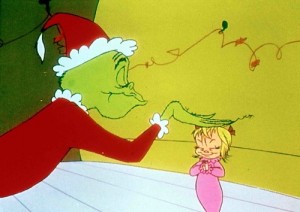
The Grinch and Cindy Lou Who, How The Grinch Stole Christmas! (1966)
Like most of Dr. Seuss’s children’s books, How The Grinch Stole Christmas! is written in rhyming verse and illustrated with colorful and bizarre characters, making it a fun and memorable read for the whole family. A noteworthy adaptation of the book is the 1966 TV special directed by Chuck Jones (of Looney Tunes fame). I remember watching it often as a kid and smiling every time the Grinch’s heart grew three sizes at the end of the story (not to mention Cindy Lou Who was probably the sweetest little thing I’d ever seen in a classic cartoon). It’s an adaptation I’d highly recommend, so if you haven’t seen it yet and it runs annually on TV in your region, be sure to watch it this holiday season! And while you’re at it, you may want to read the book again; it’s truly a Christmas classic!
Inspiration
What I find most inspiring about this book is the way it never fails to fill me with holiday cheer, regardless of the time of year. I enjoy a good story where the villain is the main character, and seeing the Grinch embrace the Christmas spirit helps me remember that there’s more to the holidays than presents (not that I ever needed much reminding, with a wonderful family like mine).
Overall, How The Grinch Stole Christmas! is a very enjoyable read, and one that should definitely be on every Seuss fan’s bookshelf. Whether I’m in the mood for his fun stories and illustrations or for his good life lessons, I always find something wonderful to enjoy in Dr. Seuss’s charming holiday tale! Enjoy, and have a very Merry Christmas!
Catching Santa (Writers Reveal)
It’s the last Writers Reveal round of the year! This month’s topic was sent to me by Emily Hawker, who suggested the prompt “Santa Claus is real”. Based on that idea, I wrote a short story with a Christmas theme. Hope you like it! Thanks for the topic, Emily! Happy Holidays, everyone!
Catching Santa
 Noelle crouched behind the living room sofa, staring at the fireplace as quietly as her excitement would allow. This was it for sure, she thought. The cookies and milk had been set by the Christmas tree, and hanging over the fireplace was a laundry basket tied to a rope that ran over the shelves all the way to her hand, exactly the way she’d seen her big brother do it. Everything was in place, and she was confident her plan would work. This year, she was going to catch Santa Claus.
Noelle crouched behind the living room sofa, staring at the fireplace as quietly as her excitement would allow. This was it for sure, she thought. The cookies and milk had been set by the Christmas tree, and hanging over the fireplace was a laundry basket tied to a rope that ran over the shelves all the way to her hand, exactly the way she’d seen her big brother do it. Everything was in place, and she was confident her plan would work. This year, she was going to catch Santa Claus.
The eight-year-old girl waited in the dark corner for what felt like an eternity. She was all alone in the living room. Her parents had gone to bed ages ago, and she had made sure to sneak back downstairs long after the lights had been turned off. The only illumination in the room came from the moonlight through the window and the dim lights on the tree, but it would still be enough to see Santa when he came… right?
Yes, of course it would. After all, the room starting to grow darker was just her imagination. She was so excited to see him; that’s why the lights on the tree seemed to be fading. She couldn’t possibly sleep now. No, she only needed to rest her eyes, just for a second…
“Noelle?”
The eight-year-old stirred at the sound of a female voice above her, and she slowly opened her eyes… until she remembered where she was. Suddenly, Noelle bolted upright to see her mother looking down at her from over the couch. At the same time, the string that had been trapped under her weight broke free. A second later, there was a loud crash, and mother and daughter turned to see a man sitting by the fireplace with a laundry basket over his head and some boxes wrapped in bright paper sprawled around him.
Noelle jumped up and hurried across the room to the man now lifting the basket off his head. Could it be…? No, it wasn’t Santa, she realized when the lights were turned on; it was her father. The man rose to his feet as his wife approached and the girl apologized profusely. After they asked if he was all right and he insisted he was fine, both parents turned their attention to their daughter.
“Noelle, sweetie, what are you doing?” said the woman.
The child looked at her feet, embarrassed. “I was trying to catch Santa Claus.”
“But why?”
“Tommy said Santa isn’t real, so I wanted to catch him to prove that he is!”
“Sweetheart”, said Noelle’s mom, kneeling down to her level, “you shouldn’t listen to your brother. I know you really want to meet Santa, but… it’s very hard to catch him, especially on Christmas Eve. He’s magical, and he’s always a step ahead. He probably knew about your plan all along, so…”
“That’s why he left your presents in our room”, said Noelle’s dad awkwardly. “He wanted us to put them under the tree for him.”
“Right.” The woman smiled at her husband before turning back to her daughter. “OK, sweetie? Now it’s time for bed.”
Noelle’s mother scooped her up while her father set about cleaning up the mess left by the trap. The girl sighed as her mom carried her upstairs, watching over the woman’s shoulder as her dad placed the boxes under the tree. Was Tommy right after all? Did their parents really leave Santa’s presents every year? Or were they the ones telling the truth?
Tucked into bed, Noelle bid her mother goodnight with a kiss and watched her step out of the room. Alone again, the child fell back on her pillow and turned on her side. That was when she noticed the red envelope sitting on her nightstand. Curious, the girl turned her lamp on and opened the envelope to read the neatly written letter inside.
Dear Noelle,
I’m sorry for ruining your plan to catch me tonight. As you know, Christmas Eve is a very busy time for me. As much as I would love to help you, I have a lot of presents to deliver to other good children like yourself, and I wouldn’t have the time to stay. I hope you understand why I needed your parents to help me.
I’m sure we’ll have a chance to meet next year. Until then, keep being a good little girl. And try not to trap your dad with a basket again.
Thank you for believing in me, Noelle! Merry Christmas, and a Happy New Year!
Your friend,
Santa Claus
P.S. Don’t worry about Tommy. He doesn’t like to believe in me because I put him on the Naughty list every year. He isn’t very nice to his little sister.
Noelle smiled as she read the last line of the letter. Jumping out of bed and rushing to the window, she looked outside just in time to see a silhouette flying past the moon, shaped very much like… Could it be?
Yes, it had to be. She had proof right in her hand, and she clutched the paper tight as she flailed her arm at the figure waving back at her. She didn’t need anything else for Christmas, not even to prove she was right. It was enough to know the truth in her heart.
From that night on, Noelle promised she would never again doubt that Santa Claus was real.
This has been a special topic post in Emily Morgan’s Writers Reveal. To learn more, just follow the button below to her site, and be sure to check out the other blogs participating in the event. Thanks for reading!
Other bloggers in the Writers Reveal
Emily Morgan: Emily Morgan Writes
Melissa Khalinsky: Melissa Writes
Jodi Gibson: JFGibson
Becky Fyfe: Imagine! Create! Write!
Rhianna: A Parenting Life
Ashley Howland: Ghostnapped
Emily Hawker: You Learn Something New Every Day
Emily Toxward: Have A Laugh On Me
Five Reasons I Love Flash Fiction
Flash fiction is quickly becoming one of my favorite formats of creative writing. Interestingly enough, I didn’t even know what it was three years ago. I discovered it through my 2011 creative writing course as a format called the “short short story”, and it didn’t take me long to fall in love with it.
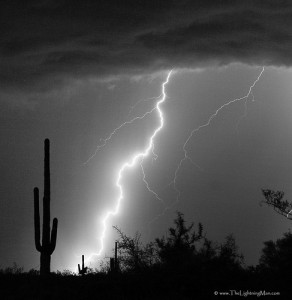
Lightning strike in the high desert
(CC Image by Bo Insogna via Flickr)
Short short stories, also known as flash fiction, are stories with less than the typical short story word count, though exactly how much that is depends on the source. From my understanding, a short story consists of at least 1,000 words; anything shorter is considered flash fiction.
As I soon learned, this style of writing was perfectly suited for me, and I’ve been writing more often in this format over the past few years. I haven’t been familiar with flash fiction for too long, so I can’t really go into an extensive lesson about it. What I can do, however, is list the main reasons why I’ve enjoyed my experience with it so far, and why I think others could enjoy it too. So just for fun, here’s a list of five reasons I love flash fiction.
1) Quick to write, quick to read. Who has the time to read long stories these days? OK, a lot of people do, but for those who don’t have that much time on their hands, flash fiction is a great alternative, for readers and writers alike. While a novel may take days to finish and short stories need time to be fully appreciated, several flash fiction stories can be written and/or read in a single sitting, making them the literary equivalent of “snacks” to the longer stories’ “supper”. Don’t get me wrong: I don’t believe a writer should take any less care with a short short story than with a novel, but when the demand for editing grows exponentially with increasing word count, flash fiction is probably the best place for the less experienced to start.
2) Best of two worlds. When I was introduced to short short stories, I learned that they’re considered a middle ground between poetry and short stories. Since I love both formats, being able to mix them into one has proven an excellent option for me. With the brevity of poetic verse and the structure of short stories, flash fiction encompasses the best of both worlds, and for that, I love it all the more.
3) A challenge for the mind. How do you tell an entire story in so few words? Trying to condense a plot – complete with characters, setting and conflict – is an exercise that I’ve found quite challenging, and it’s really helped me develop my skills as a writer. By challenging writers to cut a story down to the bone, I think flash fiction is great for helping beginners understand the essence of fiction, an essential first step for any aspiring storyteller.
4) Cutting out the “purple”. Another challenge of writing short fiction is having to place significance on every single word of a story. When working with a limit of very few words, there’s no room for unnecessary flowery details. It’s imperative to get straight to the point with only the most basic details, and that makes flash fiction excellent practice for avoiding “purple prose“. Tell a story, period.
5) It’s fun! I think this pretty much says it all. For all the reasons above, I have tons of fun writing flash fiction, and that’s why it’s one of my favorite styles of writing!
What about you? Why do (or don’t) you like flash fiction? Any other points you would add to this list?
Off The Bookshelf: Horton Hears a Who!
Since last week’s post was dedicated to the amazing children’s author Dr. Seuss, I wanted to follow it up with a post about one of his many wonderful books. However, the more I thought about it, the more I realized how hard it would be to choose which book to feature; there are so many good stories by Seuss that it’s almost impossible to choose just one favorite. Eventually, though, I settled on one of the books I find most inspiring: Horton Hears a Who!
Summary
First published in 1954 by Random House, Horton Hears a Who! tells the story of Horton the Elephant, a resident of the Jungle of Nool, and his quest to help the Whos. After hearing a small yelp coming seemingly out of thin air, Horton discovers the microscopic civilization of Whoville living on a speck of dust. Deciding that every life has value regardless of size, he places the speck on a clover and sets out to find a safe location to keep the Whos out of harm’s way. Unfortunately, being the only one with ears keen enough to hear these tiny people, the elephant has trouble convincing the other jungle residents that Whoville exists, and when they decide to put an end to his crazy antics by destroying the clover, Horton must struggle to save his new friends and teach the people of the Jungle of Nool an important lesson: “a person’s a person, no matter how small”.
Review
Horton the Elephant is one of my favorite Dr. Seuss characters, mostly for his kindness and integrity. He stays true to his word no matter what; as seen in the previous story featuring his character – Horton Hatches the Egg – when Horton makes a promise, he has every intention of seeing it through, and that makes him one of the best role models in Seuss’s stories.
I meant what I said
And I said what I meant.
An elephant’s faithful,
One hundred per cent!– Horton the Elephant, Horton Hatches the Egg (Dr. Seuss, 1954)
Like many of Dr. Seuss’s books, Horton Hears a Who! is more than just a children’s story. It also teaches good lessons, such as the importance of open-mindedness and understanding the issues of isolationism. Horton’s biggest challenge is convincing his peers that something they can’t perceive or fathom actually exists – which, when you think about it, is a story that’s only too familiar in real life. But what’s really interesting about this book is the history behind its lessons. Once strongly opposed to Japan, the author changed his opinions after World War II, and used this book as an analogy for the American post-war occupation, even dedicating the book to a Japanese friend. Overall, the metaphor of two worlds overlapping creates a beautiful message, one that children can certainly understand and appreciate.

Horton and the clover, Horton Hears a Who! (2008)
Horton Hears a Who! is one of Seuss’s most notable works. From the children’s book to the TV special to the 2008 full-length feature film (which I thoroughly enjoyed; I swear the “We are here!” scene gives me chills every time I watch it), this story is wonderfully imaginative and fun for readers and viewers of all ages. Though they may have been written for a young audience, no one is too old to enjoy the stories of the great Dr. Seuss!
Inspiration
What I always found inspiring about this book was the main character’s determination to help an entire community that he couldn’t even see. I admired Horton’s devotion to his cause, and the respect he had for all forms of life made him a truly lovable hero. With colorful characters, adventure and a heartwarming message, Horton Hears a Who! is one of my favorite Dr. Seuss stories, and one I’ll definitely enjoy for the rest of my life.
Notable Authors: Dr. Seuss
I’ve been feeling a little nostalgic lately: looking through my books for old favorites, watching movies from my childhood whenever they’re on TV, even listening to songs from the ’90s once in a while. That’s how I recently had an idea for another post on inspiration, because when I think about my childhood, one of the most prominent figures that comes to mind is the author of some of my favorite classics of children’s literature: Dr. Seuss.
Bio
Name: Theodor Seuss Geisel
Pen Name: Dr. Seuss
Life: Mar. 2, 1904 – Sept. 24, 1991
Gender: male
Nationality: American
Occupation: writer, cartoonist, animator, publisher, artist
Genres: children’s literature
Notable Works: The Cat in the Hat, Horton Hears a Who!, Green Eggs and Ham
My Favorite Works: The Cat in the Hat, The Sneetches and Other Stories, Horton Hears a Who!, How the Grinch Stole Christmas!
Inspiration
Dr. Seuss was a huge part of my childhood. When I was little, my mother signed us up for the Dr. Seuss book club, so we would get one of his books in the mail every month. By the time I started reading on my own, I had a large collection of fun stories to choose from, such as The Cat in the Hat, Horton Hears a Who! and Green Eggs and Ham. Because of this, my earliest memories of reading were filled with colorful characters and silly rhymes that kept me entertained for hours on end. If I ever wanted to get lost in books, I could always count on Seuss’s imaginative world.
The main reason I find this author so inspiring is because his stories were an important first step into my love of books. Sometimes I wonder if I would have grown to love reading as much as I do today if I hadn’t had the privilege of enjoying Dr. Seuss’s work at such a young age. His books were very easy to read and understand, and that always made reading such a pleasure. In fact, his rhymes and style of writing were so memorable that to this day, my mom and I can quote lines word for word back to each other. In this way, Seuss gave us the gift of memories that we could share for the rest of our lives.
But there was much more to these books than simple rhymes and oddly shaped characters with bizarre names. Dr. Seuss had a talent for embedding important lessons in his stories without making them blatantly obvious or patronizing. Moral issues are cleverly hidden behind tales of strange creatures living in unusual worlds: The Sneetches shows us that racism is unjustified; The Lorax shines light on environmentalism and the dangers of corporate greed to the natural world; How the Grinch Stole Christmas! criticizes the commercialization that the holiday season has suffered over time; and even a story as simple as Green Eggs and Ham can be read as a lesson on trying new things in order to form educated opinions. There was almost always something to learn in Seuss’s books, and because the lessons were presented in such a kid-friendly format (complete with his colorful illustrations), it made his stories that much more accessible to children just starting to discover the world around them.
There are quite a few authors I associate with my childhood, but Dr. Seuss is by far one of my favorites. His books inspired me to continue reading beyond the beginner level, and the lessons in his stories have stayed with me into my adult years. Even now, I can’t help but smile as I think about how I once knew The Sneetches by heart and how I still enjoy reading Horton Hears a Who! out loud once in a while. Though authors like Roald Dahl and J.K. Rowling were great inspirations for my writing, Dr. Seuss was a great inspiration for my reading, and in my opinion, there’s no greater gift that a writer can give to children. To the little girl still in my heart, Dr. Seuss will always be a hero.
Rescue Me (Writers Reveal)
Yes, it’s time for another round of Writers Reveal! Today’s topic comes from the newest member of our circle, Emily Toxward, who sent me the prompt “circling helicopters”. Here’s the short story I wrote based on that idea. Hope you like it! Thanks for the topic, Emily!
Rescue Me

Rescue Helicopter
(CC Image by Sheba_Also via Flickr)
Circle overhead… searching for a lost soul…
My heart is pounding in my ears. The pain is sharp and constant. The air around me is cool on the breeze.
I wait. I’ve been waiting for hours. I may be here for a few more. Is anyone looking for me?
I know I shouldn’t have gone off the trail. But I wanted to be adventurous. I wanted to explore. Just once, I wanted to prove them wrong, show them that I’m not always so afraid, that I can live on the edge too.
And look where it’s gotten me. Maybe they were right all along.
I still think I could have made it if those darn rocks hadn’t slipped. Now I’m lost and trapped, with nothing but the wind and my own breathing to break the silence.
And the occasional whirring noise in the distance, like the one approaching now.
This is the third helicopter to pass in two hours. Or maybe it’s the same one on its third lap around the mountain. It’s hard to tell when it blends into the clouds of the evening sky.
“I’m here!” Yet again, I try to get its attention, waving my arms while trying not to move my injured leg. “Look at me! Please…”
I wince as my foot brushes against the fallen rocks. Yes, it’s definitely broken; my leg doesn’t normally bend that way.
“Help me…” The cold is so overbearing, I can hardly get the words out anymore. Not that they’d hear me anyway. But with a broken limb, my options are limited.
I watch the helicopter pass overhead. Curse these trees! Why couldn’t I have fallen on open ground? I’d have been rescued ages ago!
Wait, what’s that? In the face of a darkening sky and a rising moon, a searchlight now appears under the helicopter. By some miracle, the light finds its way to my patch of earth. Yes! Surely they can see me now!
But will they reach me in time?
The sound of howling suddenly pierces the evening air. Not now, please not now. They’re so close! I can already hear the whirring getting louder again…
The sunlight is fading fast. I’m too exhausted to move anymore. The howling grows louder, but I swear I can see the aircraft turning around. It must be coming back for me… It must…
The world around me grows dark. All I can see anymore is that beacon of hope in the sky. I close my eyes and wait for the rotating blades of salvation to reach me before the mountain beasts do…
Helicopters circle overhead, all day searching for a lost soul to rescue. It doesn’t matter if this one’s for me; the next one will find me for sure.
This has been a special topic post in Emily Morgan’s Writers Reveal. To learn more, just follow the button below to her site, and be sure to check out the other blogs participating in the event. Thanks for reading!
Other bloggers in the Writers Reveal
Emily Morgan: Emily Morgan Writes
Melissa Khalinsky: Melissa Writes
Jodi Gibson: JFGibson
Becky Fyfe: Imagine! Create! Write!
Josefa: Always Josefa
Rhianna: A Parenting Life
Ashley Howland: Ghostnapped
Emily Hawker: You Learn Something New Every Day
Emily Toxward: Have A Laugh On Me
25 Words and Phrases You May Be Confusing in Your Writing
All native English speakers are familiar with this problem: words and phrases that appear similar in spelling, pronunciation or meaning, but that actually have distinct definitions. This, of course, can cause some confusion when writing. After all, it’s not always easy keeping track of the right words for the context we want, and even the most proficient writers make mistakes. But nobody’s perfect, right?
 To help you avoid some common (and a few uncommon) grammar pitfalls, here are 25 examples of words and phrases you may be getting mixed up in your writing. Almost all of these items were taken from The Hodges Harbrace Handbook, an excellent resource for beginning and advanced writers alike. Be sure to check it out if you can! Write wisely!
To help you avoid some common (and a few uncommon) grammar pitfalls, here are 25 examples of words and phrases you may be getting mixed up in your writing. Almost all of these items were taken from The Hodges Harbrace Handbook, an excellent resource for beginning and advanced writers alike. Be sure to check it out if you can! Write wisely!
1) accept/except
It’s easy to confuse these words because they sound so similar, but they have very different definitions. “Accept” is a verb that means “to receive with consent”; “except” is a preposition that means “other than”. “Except” is also a verb meaning “to exclude”.
I accept all apologies, except those that aren’t heartfelt.
2) affect/effect
These words are so easy to mix up that I always stop and double-check if I’m using the right one before I move on. “Affect” is a verb meaning “to make a difference to”; “effect” is a noun meaning “result of a cause”. As a verb, “effect” means “to cause”.
The effect that book had on my friend’s life did not affect my opinion of it.
3) among/between
Here’s an example of two words that seem similar in meaning, but that aren’t usually interchangeable because their uses depend on context. Generally speaking, “between” is exclusively for referring to two entities, while three or more should be referred to using “among”.
Between the two of us, I don’t see any love among the three band members.
4) anymore/any more
Who among us hasn’t once mistakenly inserted a space where it wasn’t necessary (or omitted one where it was)? I’m sure we’ve all had our doubts about the difference between “anymore” and “any more”. As one word, “anymore” means “any longer”, while as two, “any more” is used with a negative to mean “no more”.
Do not give me any more problems, or I won’t have the patience to deal with you anymore.
5) can/may
Did anyone else’s parents use to answer the question “Can I?” with “You can, but you may not”? No? Just mine? OK, then. Basically, by answering sarcastically, my parents were teaching us the proper way to ask if we were allowed to do something, as “can” refers to ability while “may” refers to permission.
You can drive 80 miles an hour, but you may not go over the speed limit.
6) coarse/course
Here’s a pair of homophones that are especially easy to get confused because they only differ by one letter. “Coarse” is an adjective that means “rough”, but “course” is a noun that means “route” or “plan of study” (or a verb that means “move without obstruction”).
We’ll need a new course of action if we want to make this coarse piece smooth.
7) complement/compliment
This is another pair of words that sound alike and differ by one letter. Don’t let these verbs confuse you, though. “Complement” means “to complete”, and “compliment” means “to express praise”. Be sure to check which letter you’re using!
I had to compliment her on how well her piece was able to complement mine.
8) elicit/illicit
This mistake is a little less common, but still possible to make due to similar spelling. “Elicit” is a verb meaning “to evoke a response”, and “illicit” is an adjective meaning “illegal”.
She was quick to elicit objections from her peers by talking about her boyfriend’s illicit actions.
9) eminent/imminent
I’ve actually never made this mistake myself because I’m not too familiar with the word “eminent”, but I still think it’s worth mentioning. Though both are adjectives, “eminent” means “distinguished”, and “imminent” means “about to happen”.
For such an eminent artist, worldwide success was imminent.
10) everyday/every day
Oh, those darn spaces, always confusing us! Here’s another mistake we have to watch for, because a single space does change the meaning behind the words! “Everyday” as one word means “commonplace” or “routine”, but “every day” as two words means “each day”.
Every day, I have to help my sister deal with her everyday problems.
11) explicit/implicit
This one might not be very common, but it’s still an important mistake to note, because even though these two adjectives seem similar, they have opposite meanings. “Explicit” means “stated clearly”, while “implicit” means “expressed indirectly”. Make sure you’re not saying the opposite of what you mean!
By using explicit details, the director makes the message of the movie implicit.
12) farther/further
These adverbs may seem interchangeable, but which one you should use actually depends on context. Both are comparatives of “far”, but “farther” is used to refer to geographic distance, while “further” is used to mean “more”.
We’ll need further assistance if we’re to travel farther tomorrow than we did today.
13) fewer/less
I added this example to the list because it’s common for writers to go straight for “less” when indicating lower amounts. Like the cases of “among”/”between” and “farther”/”further”, however, context is important. Though both words mean the same thing, “fewer” is for nouns that can be counted, while “less” is for nouns that can’t.
Since I started outlining my novel, I have fewer blank notebook pages and much less free space on my desk.
14) good/well
Colloquial speech has made it very common for people to mix up the proper uses of “good” and “well”. I can attest to this from personal experience; knowing the difference between “good” and “well” doesn’t keep me from answering “How are you?” with “Good”. But even though they mean the same thing, there’s a difference: “good” is an adjective and “well” is an adverb. Make sure you aren’t confusing them!
A good writer knows how to tell stories well.
15) its/it’s
What’s a list of common grammar mistakes without a few examples of “contraction confusion”? We’ve all been guilty of this error before, but it’s understandable when one apostrophe makes all the difference. “Its” is the possessive form of “it”, and “it’s” is the contraction of “it is”. Careful with that apostrophe!
It’s easy for students to struggle with English and its many grammar rules.
16) lay/lie
This is one mistake I always have to take extra care not to make, because the past tense of one is the present tense of the other! The main difference between these verbs is that one takes an object while the other doesn’t. “Lay” means “to put (something) down”; “lie” means “to rest”.
I have to lay my things on the desk before I can lie down.
17) raise/rise
This is a tough mistake to make, but I’m fairly certain I’ve seen it happen before. Like the previous example, the difference between these verbs is that one is transitive and the other is intransitive. “Raise” means “to lift (something) up”, while “rise” means “to ascend”.
The teacher made me raise my hand and ask permission before I could rise from my chair.
18) sometime/some time
Yes, it’s another case involving a space (sorry for the lame rhyme). Whether you write it as one word or two will alter the meaning of the sentence. “Sometime” as one word means “at an unspecified time”, and “some time” as two words indicates a span of time.
Sometime next month, we’ll be able to spend some time together.
19) than/then
These are two words that I constantly mix up by accident, to the point where I always read the sentence at least three times to make sure I used the right one before moving on. “Than” is a conjunction and preposition used in comparisons; “then” is an adverb indicating a time sequence. Always be sure to double-check!
Back then, he used to say he’d rather listen to underground rock than mainstream pop music.
20) their/there/they’re
Here it is: the famous trio! You didn’t think I’d leave this one out, did you? Self-proclaimed “Internet grammar police” love picking on people for this mistake, and although I sympathize with those who commit the error once in a while, I can’t forgive those who insist on interchanging these words without any respect for the English language. “Their” is the possessive form of “they”; “there” is an adverb referring to location; and “they’re” is the contraction of “they are”. Be careful with your word choice!
They’re going there to retrieve their test scores.
21) to/too/two
Here’s another famous word trio. When one letter makes all the difference, it’s very easy to mix these words up. “To” is a preposition and infinitive marker; “too” is an adverb meaning “also” or “excessively”; and “two” is a number.
Two mistakes in your essay are still too many if you hope to ace this test.
22) weather/whether
This one may seem unlikely, but I swear I’ve seen writers mix up these words before. “Weather” is a noun referring to the state of the atmosphere (and sometimes a verb meaning “to wear away”); “whether” is a conjunction indicating a choice between alternatives. Make sure you’re using the right word!
Whether or not you believe in climate change, you can’t deny that the weather has been strange lately.
23) who/whom
We all know that person who insists on correcting us when we use “who” incorrectly (my family does for sure, because it’s me). Which word you use depends on voice: “who” is used as a subject, while “whom” is used as an object. When in doubt, try rewording the phrase with “he/she” (subject) or “him/her” (object).
To whom it may concern, I’m the one who let the birds out of the cage.
24) whose/who’s
Speaking of “who”, here’s another pair of homophones that are easy to confuse. Even I sometimes have to go back and fix the mistake. “Whose” is the possessive form of “who”, and “who’s” is the contraction of “who is”.
Whose fault is it if we can’t figure out who’s responsible for this mess?
25) your/you’re
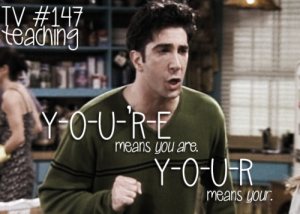
Image by TVTeachings via Tumblr
And now for the final pair of easily confused words: the famous “your” and “you’re”. Friends fans, remember that moment when Ross is fighting with Rachel over the letter she wrote him, and points out her grammar error for good measure? Yes, he was drawing attention to a mistake that many people are guilty of making at least once in their writing. But we all know which word is which: “your” is the possessive form of “you”, and “you’re” is the contraction of “you are”. The trick is making sure we’re using the right one!
You’re not going anywhere until your homework is done!
These are just some of the many examples of easily confused words in the English language. Yes, an innocent mistake now and then is forgivable; our grammar is so complex that even native speakers struggle with it from time to time. Still, as writers, we should take care to avoid these mistakes as much as possible. If nothing else, we should be setting a good example for all other English speakers!
What about you? Have you ever confused any of these words and phrases before? What other examples would you add to this list?
Motivational Music: Classical (Mozart, Beethoven, Bach)
After recently spending hours listening to music on YouTube, I was inspired to write another Motivational Music post. Following the debut post about ambient/post-rock music, the genre featured in today’s topic is one that I’ve enjoyed since I can remember: classical. This type of music has been great inspiration for some of my writing in the past, especially poetry (since I like to think of classical music as poetry created with sound). I don’t want to go into “pretentious mode” and pretend to have a Music-major’s extensive knowledge of the genre, though, so for my first post on the subject, I’ll just scratch the surface with a few well-known Classical-era composers: Mozart, Beethoven and Bach.
Wolfgang Amadeus Mozart
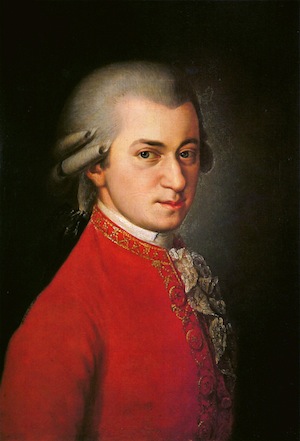
Wolfgang Amadeus Mozart (1756-1791)
Genre(s): Classical
Origin: Salzburg, Austria
Writing Inspiration: Poetry, humor
My Favorite Song(s): “Rondo Alla Turca” (Piano Sonata No. 11), “Symphony No. 40”
When thinking of classical music, one of the first names that comes to mind is Mozart, and with good reason. From piano sonatas to orchestra symphonies to operas, his music is wonderfully melodic and an absolute delight to listen to. Though I do enjoy the grander compositions like his 40th symphony, my favorite pieces of his are the lighter sonatas and arias, such as “Rondo Alla Turca” (the last movement of his 11th piano sonata, also known as the Turkish March) and the Queen of the Night aria (from the opera The Magic Flute).
What I find so enjoyable about Mozart’s music is the way it bounces, like the notes are floating on a breeze. Back when I took vocal lessons, I had to learn his piece “Das Veilchen” (“The Violet”), and though it was difficult to sing in German, I still enjoyed it for the bright melody. That’s why I find Mozart inspirational not just for poetry, but for humorous writing. Even when I’m not writing, I like to listen to his compositions just because they put me in a good mood. Whether it’s a grand symphony or a simple piano solo, there’s something about Mozart’s music that always brings a smile to my face.
Ludwig van Beethoven
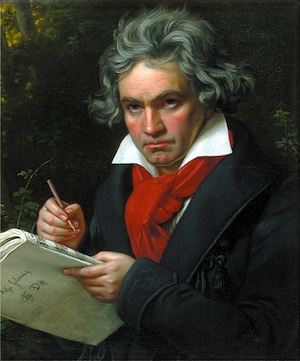
Ludwig van Beethoven (1770-1827)
Genre(s): Classical (Romantic era)
Origin: Bonn, Germany
Writing Inspiration: Poetry, drama, romance
My Favorite Song(s): “Symphony No. 5“, “Für Elise” (Bagatelle No. 25)
Yes, Beethoven is one of those composers whose music I could listen to all day. While I appreciate Mozart for his upbeat pieces, I enjoy Beethoven for his bold and powerful symphonies, which make excellent inspiration for dramatic writing. I sometimes listen to his fifth symphony when trying to get into a mindset for heavier scenes full of action or strong emotion (as demonstrated beautifully in this segment from Disney’s Fantasia 2000). Of course, the composer wasn’t limited to intense symphonies; one of his most famous pieces is the lovely piano bagatelle “Für Elise”, which contrasts with his more elaborate compositions for its soft and romantic melody.
Beethoven was an important figure in the transition between the Classical and Romantic eras of music, so it stands to reason that his pieces comprise a diversity of sources for writing inspiration, from poetry to drama to romance. Honestly, I find his music so inspiring that I’d recommend it not just to writers, but to artists of any type. If you appreciate music at all, you should have at least one composition by Beethoven in your music player. It’s definitely worth it.
Johann Sebastian Bach
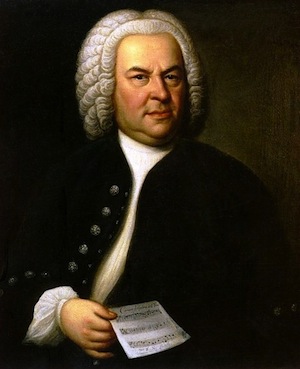
Johann Sebastian Bach (1685-1750)
Genre(s): Classical
Origin: Eisenach, Germany
Writing Inspiration: Poetry, drama
My Favorite Song(s): “Little Fugue (in G minor)“, Cello Suites
While Bach is admittedly not my favorite classical composer as far as concertos, I do enjoy his more subtle music. His cello suites are very beautiful and soothing (especially as performed by Yo-Yo Ma), and I find the slow melodies inspiring for writing drama and romance. My favorite piece, however, is definitely his “Little Fugue (in G minor)”; the music builds up as the different parts blend into each other to create a beautiful harmony, which I enjoy listening to while writing poetry or drama. Fun fact: this piece was adapted for the Dreamworks movie Shrek Forever After, where it plays as a club track (“Rumpel’s Party Palace“) in Rumpelstiltskin’s castle!
Though most of my favorite classical pieces are by Mozart and Beethoven, I find some of Bach’s music just as inspirational for certain forms of emotional writing. At the very least, I’d recommend his cello suites as background music for relaxing, as that can really help make the creative process easier!
Classical music is wonderful to listen to, as much for entertainment as for writing inspiration. Whether you write poetry or prose, comedies or tragedies, you can probably find inspiration in a good classical piece. I hope you enjoy the music I’ve shared with you today, and that you find in it the inspiration you need for your own art! Thanks for reading/listening!

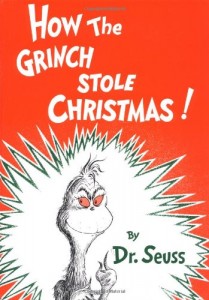

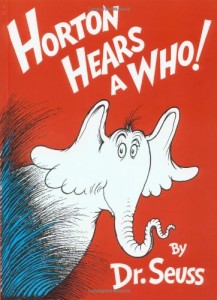
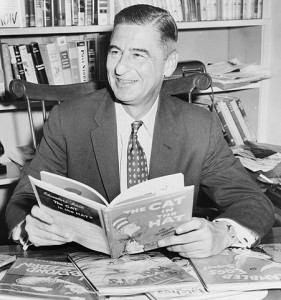
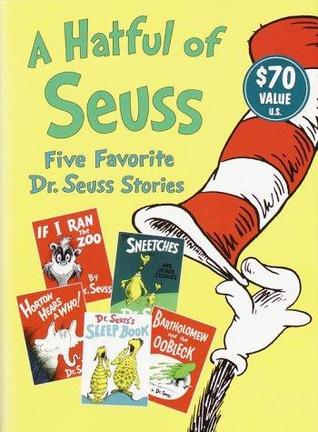

Recent Comments